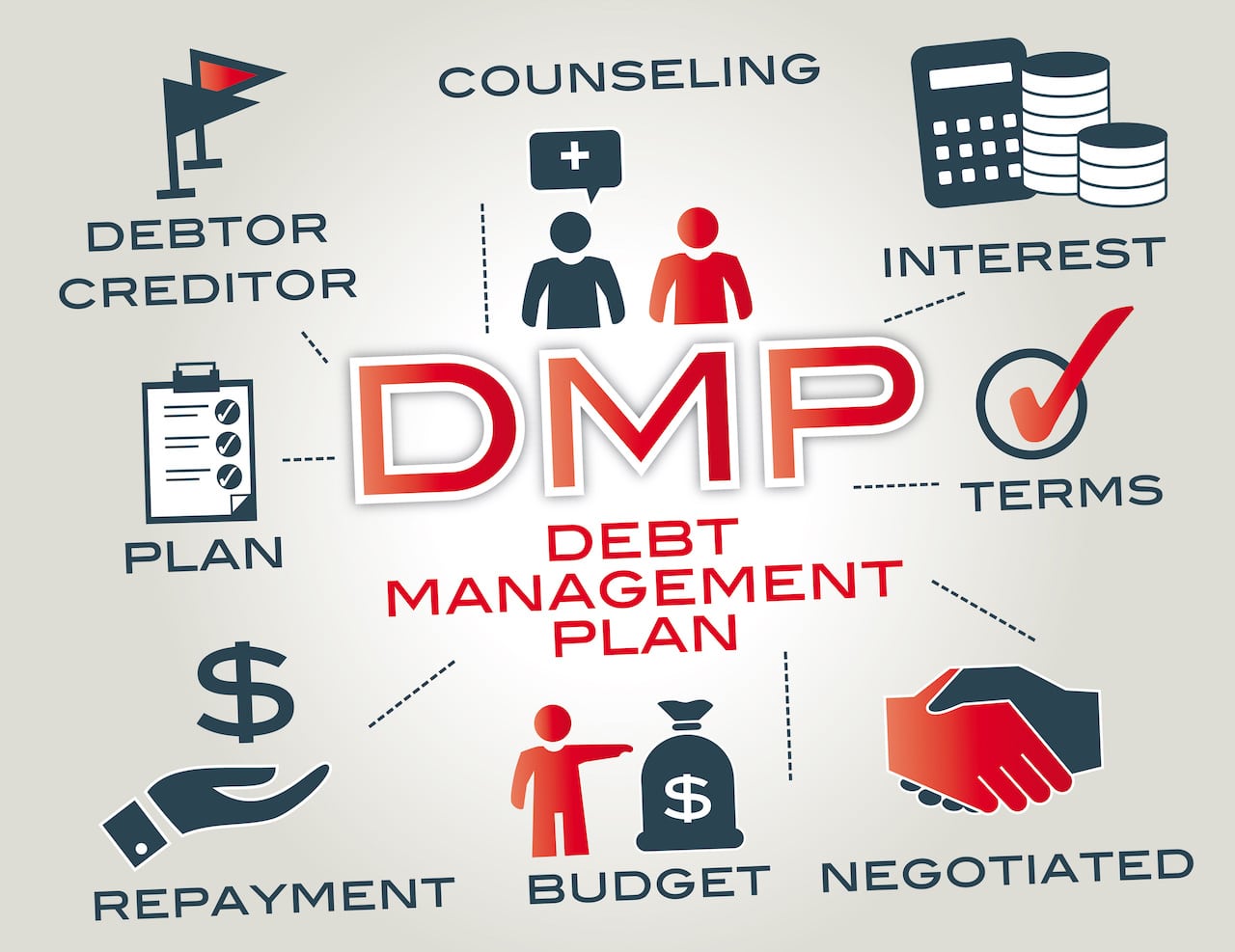A Full Guide to Debt Management Plan Services for Debt Loan Consolidation
Professional Tips and Techniques for Implementing an Effective Debt Monitoring Plan
When it comes to navigating the complexities of financial obligation monitoring, having a well-thought-out plan is vital for attaining economic stability. From evaluating your present economic standing to bargaining with creditors, each step plays a critical function in forming an effective financial debt monitoring strategy.
Examining Your Existing Financial Scenario
Before getting started on a financial debt administration plan, it is essential to thoroughly assess your present economic standing. Comprehending your monetary scenario is the fundamental step in the direction of efficiently managing and lowering your financial obligation.

Establishing a Realistic Budget
Comprehending your current economic situation prepares for establishing a realistic budget that lines up with your financial debt management goals and economic capacities. When creating a budget plan, it's vital to properly track your income, expenditures, and financial debt obligations. Beginning by detailing all income sources, including salaries, bonuses, and any added revenues. Next off, describe your repaired costs such as rent or mortgage payments, energies, insurance policy, and lending repayments. Variable expenditures like grocery stores, enjoyment, and transportation should additionally be accounted for. By classifying your costs, you can recognize locations where you might need to cut back to liberate funds for debt settlement.

Focusing On and Taking On Financial Debts
To effectively gain back control of your funds and job in the direction of monetary stability, prioritizing and tackling your financial obligations is a crucial action in your debt management plan. Begin by providing all your financial debts, consisting of credit cards, financings, and any kind of various other outstanding equilibriums. Recognize high-interest financial obligations that are costing you one of the most cash and focus on paying them off first. By focusing on these high-interest financial obligations, you can save money in the future and reduce the total quantity you owe.
After recognizing your high-interest financial obligations, consider making use of approaches like the financial debt snowball or financial obligation avalanche method to pay them off methodically. The financial debt snowball technique involves repaying the smallest debts first, while the financial debt avalanche technique prioritizes financial debts with the greatest passion prices. Choose the technique that aligns finest with your economic goals and encourages you to keep making progression.
Additionally, take into consideration working out with lenders for reduced rate of interest or establishing a layaway plan if you're struggling to satisfy your existing responsibilities. Looking for help from a credit history counselor or monetary expert can also offer beneficial insights and support on how to successfully tackle your debts - debt management plan services. By focusing on and resolving your financial obligations tactically, you can pave the way in the direction of a debt-free future and improved like it monetary health
Negotiating With Lenders
When involving in financial obligation monitoring, discussing with creditors is a crucial step towards discovering equally advantageous remedies for debt settlement. Open communication with lenders can cause modified repayment strategies, minimized rate of interest, and even negotiation deals. Prior to launching arrangements, it is necessary to have a clear understanding of your financial scenario, including your revenue, expenditures, and the complete quantity of debt owed. This info will not just aid you make practical deals yet additionally demonstrate to lenders that you are committed to great post to read dealing with the debt.

Building Healthy And Balanced Financial Routines
Incorporating constant budgeting methods is important for growing healthy economic practices. Budgeting enables people to track their revenue and expenses, enabling them to make educated choices concerning their financial concerns. Establishing details financial goals, such as conserving for emergency situations or retirement, can supply a clear roadmap for taking care of cash effectively.
Another secret element of structure healthy and balanced economic habits is living within one's ways. This includes costs much less than what is made and staying clear of unneeded debt. Embracing a frugal attitude and identifying in between requirements and desires can assist individuals make more prudent investing options.
On a regular basis reviewing financial declarations and checking credit reports are crucial behaviors that advertise monetary awareness and responsibility. By remaining notified about their financial standing, people can determine potential issues beforehand and take aggressive actions to address them.
Furthermore, developing a cost savings practice, despite small quantities, can contribute considerably to long-term economic protection. Conserving frequently not only builds an economic pillow for unexpected expenditures however also cultivates a feeling of discipline and duty in the direction of helpful resources finance. By continually exercising these practices, people can lay a solid foundation for a secure monetary future.
Conclusion
In final thought, implementing an effective debt administration plan needs a comprehensive assessment of one's monetary situation, the advancement of a reasonable spending plan, prioritizing and dealing with financial debts, working out with financial institutions, and building healthy financial routines (debt management plan services). By adhering to these expert ideas and strategies, people can take control of their finances and work in the direction of attaining financial stability and flexibility from debt
Comprehending your present economic circumstance lays the foundation for developing a reasonable spending plan that straightens with your debt administration goals and monetary abilities.To properly regain control of your financial resources and work in the direction of economic security, prioritizing and tackling your financial obligations is a critical action in your debt administration strategy.After recognizing your high-interest financial obligations, take into consideration using strategies like the debt snowball or financial obligation avalanche technique to pay them off systematically. The financial obligation snowball technique includes paying off the tiniest financial debts initially, while the financial debt avalanche method focuses on financial debts with the highest possible passion prices.When involving in financial debt monitoring, bargaining with financial institutions is an essential action in the direction of discovering equally valuable remedies for financial debt settlement.